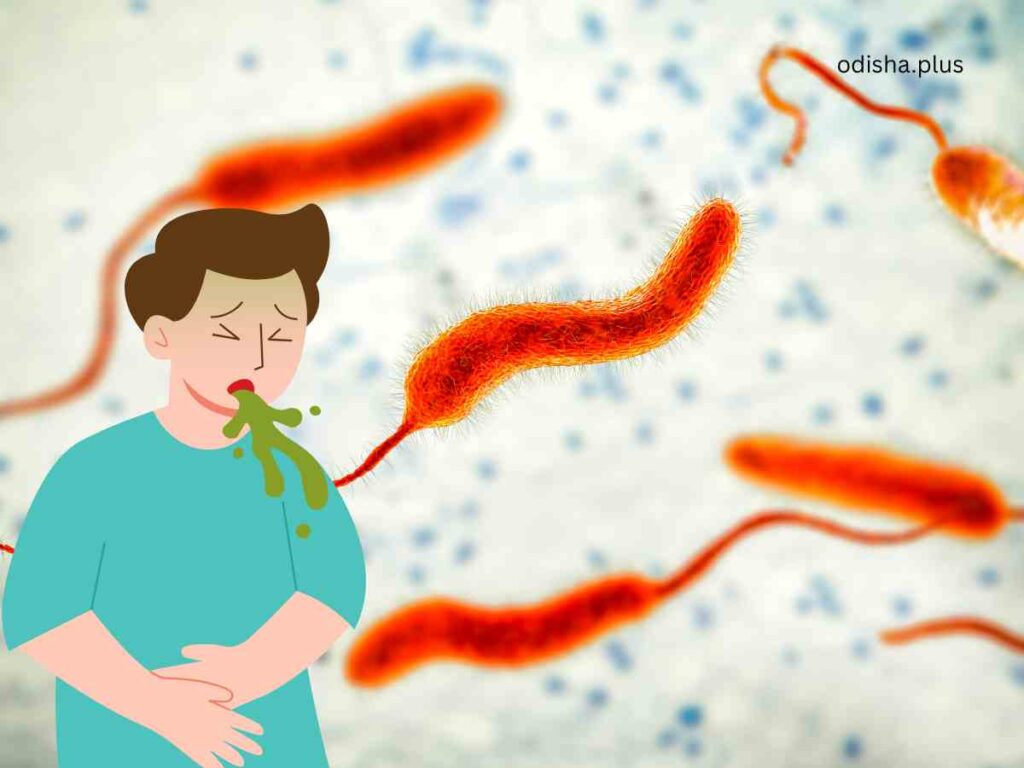Open drains and outdated sewage systems allow fecal matter to mix with groundwater, especially during monsoons
OdishaPlus Bureau

Odisha’s cholera outbreak and drinking water crisis expose deep-rooted sanitation infrastructure challenges.Over 50% of rural households in districts like Jajpur and Keonjhar rely on untreated borewells or open sources, prone to contamination by sewage or floodwater. Urban slums in Bhubaneswar, like those near Trident Galaxy, face similar issues due to erratic municipal water supply.
Open drains and outdated sewage systems allow fecal matter to mix with groundwater, especially during monsoons. In Jajpur, water samples confirmed Vibrio cholerae due to sewage infiltration into drinking water sources.
Despite Swachh Bharat Mission efforts, only 70% of rural Odisha households have functional toilets according to 2023 data.Also, Open defecation persists, contaminating water bodies. In Bhadrak, poor waste disposal near rivers worsens the crisis.Existing water infrastructure, like handpumps and tube wells, often falls into disrepair due to inadequate funding and oversight. In Keonjhar, 30% of water points are non-functional, forcing reliance on unsafe alternatives.
Bhubaneswar’s urban areas have better infrastructure but struggle with last-mile delivery in slums. Rural areas lack investment, with delays in Jal Jeevan Mission projects leaving many villages without tapped water. Heavy rainfall and flooding, common in June, overwhelm drainage systems and contaminate wells. Climate change exacerbates these risks, yet adaptive infrastructure upgrades lag.
Short-term measures taken by the government include chlorination, water tankers, and repair drives, but these are reactive.The “Stop Diarrhoea” campaign promotes hygiene, but awareness alone can’t address structural deficits.Budget constraints and slow implementation of schemes like Basudha (rural water supply) hinder progress.Coordination between departments (Public Health and Rural Development) is often poor, delaying fixes.
What is of urgent importance is accelerate piped water projects under Jal Jeevan Mission, targeting 100% coverage by 2027.Upgrading sewage and drainage systems, prioritizing urban slums and flood-prone areas.Increasing funding for maintenance of water points and real-time water quality monitoring.
Promoting community-led Similarly, sanitation to sustain toilet usage and waste management is needed.Investing in climate-resilient infrastructure, like elevated water tanks and sealed wells is also needed.
Without addressing these systemic issues, Odisha risks recurrent outbreaks, threatening public health and development goals.
























